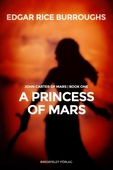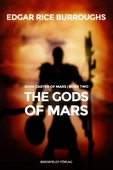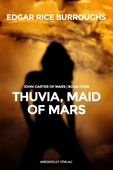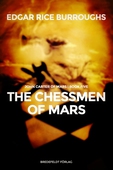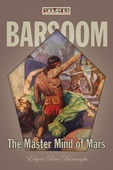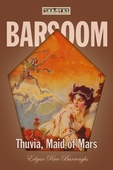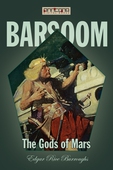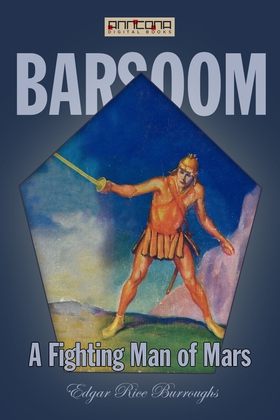
Lägg till önskelistan
A Fighting Man of Mars (The Barsoom series #7) e-bok
Pris
19 kr
A Fighting Man of Mars is the seventh of the Barsoom series. The story was first published in Blue Book Magazine as a six-part serial in the issues for April to September, 1930. It was later published as a complete novel by Metropolitan in May, 1931.
The story is purportedly relayed back to earth via the Gridley Wave, a sort of super radio frequency previously introduced in Tanar of Pellucidar, the third of Burrough's Pellucidar novels, which thus provides a link between the two series. The ...
E-Bok
19 kr
Pris
Förlag
Anncona Media
Utgiven
5 Mars 2014
Genrer
Science Fiction, Romaner, Science Fiction & Fantasy, Skönlitteratur
Serie
The Barsoom series
Del i serie
7
Språk
English
Format
epub
Kopieringsskydd
Vattenmärkt
ISBN
9789176050835
A Fighting Man of Mars is the seventh of the Barsoom series. The story was first published in Blue Book Magazine as a six-part serial in the issues for April to September, 1930. It was later published as a complete novel by Metropolitan in May, 1931.
The story is purportedly relayed back to earth via the Gridley Wave, a sort of super radio frequency previously introduced in Tanar of Pellucidar, the third of Burrough's Pellucidar novels, which thus provides a link between the two series. The story-teller is Ulysses Paxton, protagonist of the previous novel, The Master Mind of Mars, but this story is not about him; rather, it is the tale of Tan Hadron of Hastor, a lowly, poor padwar (a low-ranking officer) who is in love with the beautiful, haughty Sanoma Tora, daughter of Tor Hatan, a minor but rich noble. As he is only a padwar, Sanoma spurns him. Then Sanoma Tora is kidnapped, and the novel moves into high gear.
Barsoom is a fictional representation of the planet Mars created by American pulp fiction author Edgar Rice Burroughs. The first Barsoom tale was serialized as Under the Moons of Mars in 1912, and published as a novel as A Princess of Mars in 1917. Ten sequels followed over the next three decades, further extending his vision of Barsoom and adding other characters.
The world of Barsoom is a romantic vision of a dying Mars. Writers and science popularizers like Camille Flammarion, who was convinced that Mars was at a later stage of evolution than Earth and therefore much more dry, took the ideas further and published books like Les Terres du Ciel (1884), which contained illustrations of a planet covered with canals. Burroughs gives credits to him in his writings, and goes as far as to say that he based his vision of Mars on that of Flammarion. John Carter is transported to Mars in a way described by Flammarion in Urania (1889), where a man from earth is transported to Mars as an astral body where he wakes up to a lower gravity, two moons, strange plants and animals and several races of advanced humans. In The Plurality of Inhabited Worlds and Lumen, he further speculates about plant people and other creaturs on far away planets, elements that would later appear in the Barsoom stories.
The Barsoom series, where John Carter in the late 1800s is mysteriously transported from Earth to a Mars suffering from dwindling resources, has been cited by many well-known science fiction writers as having inspired and motivated them in their youth, as well as by key scientists involved in both space exploration and the search for extraterrestrial life. Elements of the books have been adapted by many writers, in novels, short stories, comics, television and film.
Edgar Rice Burroughs (1875-1950) was an American author, best known for his creation of the jungle hero Tarzan and the heroic Mars adventurer John Carter, although he produced works in many genres.

